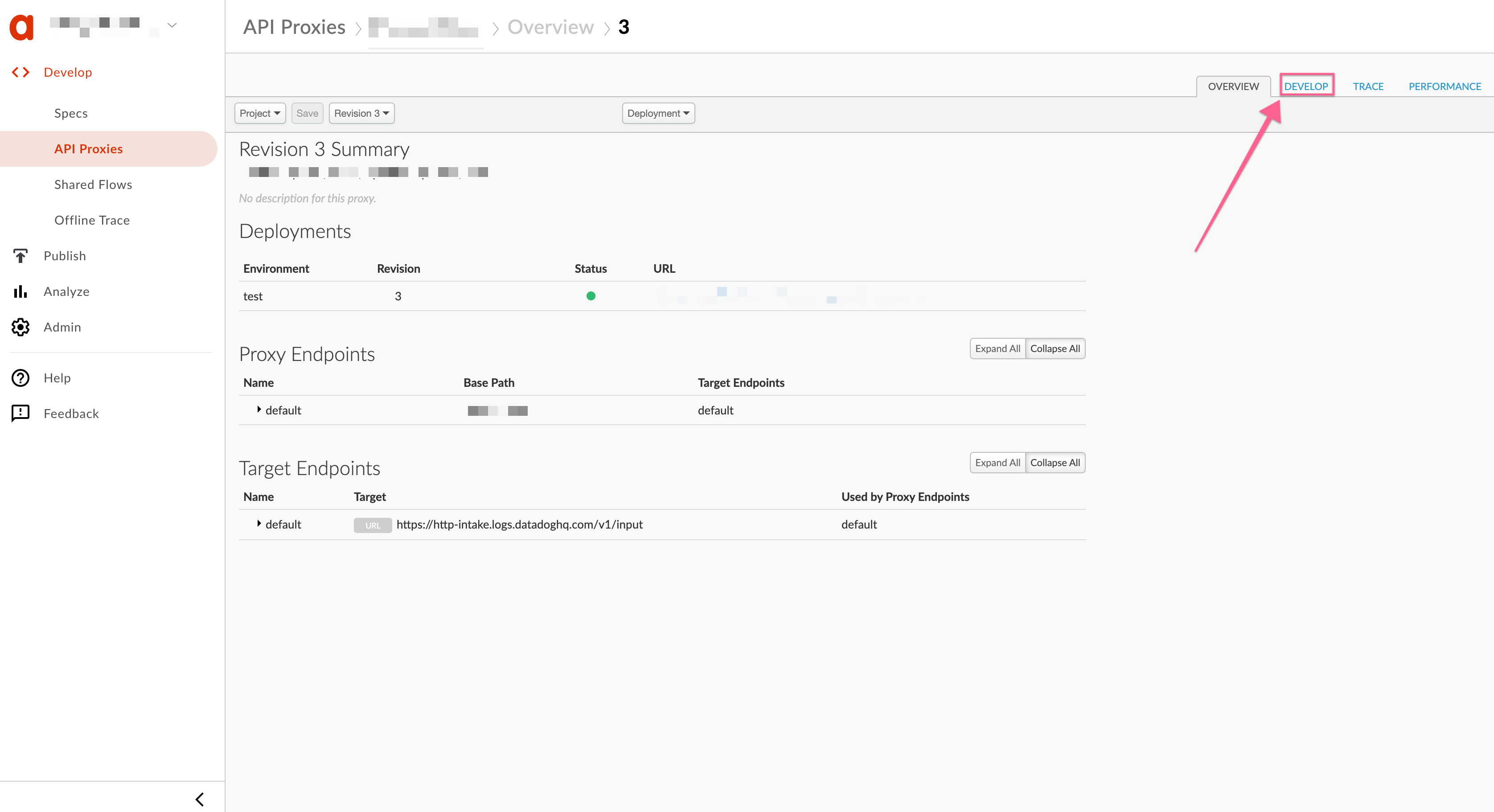- 重要な情報
- はじめに
- Datadog
- Datadog サイト
- DevSecOps
- AWS Lambda のサーバーレス
- エージェント
- インテグレーション
- コンテナ
- ダッシュボード
- アラート設定
- ログ管理
- トレーシング
- プロファイラー
- タグ
- API
- Service Catalog
- Session Replay
- Continuous Testing
- Synthetic モニタリング
- Incident Management
- Database Monitoring
- Cloud Security Management
- Cloud SIEM
- Application Security Management
- Workflow Automation
- CI Visibility
- Test Visibility
- Intelligent Test Runner
- Code Analysis
- Learning Center
- Support
- 用語集
- Standard Attributes
- ガイド
- インテグレーション
- エージェント
- OpenTelemetry
- 開発者
- 認可
- DogStatsD
- カスタムチェック
- インテグレーション
- Create an Agent-based Integration
- Create an API Integration
- Create a Log Pipeline
- Integration Assets Reference
- Build a Marketplace Offering
- Create a Tile
- Create an Integration Dashboard
- Create a Recommended Monitor
- Create a Cloud SIEM Detection Rule
- OAuth for Integrations
- Install Agent Integration Developer Tool
- サービスのチェック
- IDE インテグレーション
- コミュニティ
- ガイド
- API
- モバイルアプリケーション
- CoScreen
- Cloudcraft
- アプリ内
- Service Management
- インフラストラクチャー
- アプリケーションパフォーマンス
- APM
- Continuous Profiler
- データベース モニタリング
- Data Streams Monitoring
- Data Jobs Monitoring
- Digital Experience
- Software Delivery
- CI Visibility (CI/CDの可視化)
- CD Visibility
- Test Visibility
- Intelligent Test Runner
- Code Analysis
- Quality Gates
- DORA Metrics
- セキュリティ
- セキュリティの概要
- Cloud SIEM
- クラウド セキュリティ マネジメント
- Application Security Management
- AI Observability
- ログ管理
- Observability Pipelines(観測データの制御)
- ログ管理
- 管理
Apigee
このページは日本語には対応しておりません。随時翻訳に取り組んでいます。翻訳に関してご質問やご意見ございましたら、お気軽にご連絡ください。
Overview
Collect Apigee proxy logs to track errors, response time, duration, latency, monitor performance, and proxy issues.
Setup
Log collection
There are two methods for collecting Apigee logs:
- Use Apigee’s JavaScript policy to send logs to Datadog.
- If you already have a syslog server, use the Apigee MessageLogging policy type to log to a syslog account.
Syslog parameter
Use the MessageLogging policy type with the syslog parameter on your API to log custom messages to syslog. Replace <site_intake_endpoint> with and <site_port> with , in the following example:
<MessageLogging name="LogToSyslog">
<DisplayName>datadog-logging</DisplayName>
<Syslog>
<Message><YOUR API KEY> test</Message>
<Host><site_intake_endpoint></Host>
<Port><site_port></Port>
<Protocol>TCP</Protocol>
</Syslog>
</MessageLogging>
JavaScript policy
Send Apigee proxy logs to Datadog using Apigee’s JavaScript policy.
The JavaScript has been configured to capture the essential flow variables as log attributes in Datadog. The attributes are named according to the list of standard attributes.
- Select the Apigee proxy from which you want to send logs to Datadog.
- In the selected proxy overview page, click the DEVELOP tab located in the top-right corner.
- Under Navigator, go to add a new JavaScript policy and edit the JavaScript file created under the Resources –> jsc dropdown menu.
- Add the following JavaScript code snippet in it. Make sure to replace
<DATADOG_API_KEY>in thedd_api_urlvariable with your Datadog API KEY.
// Set the Datadog API URL here.
var dd_api_url = "https://http-intake.logs.Note: Add more flow variables into JavaScript from the official Apigee flow variable reference.
Troubleshooting
Need help? Contact Datadog support.
Further Reading
お役に立つドキュメント、リンクや記事:

